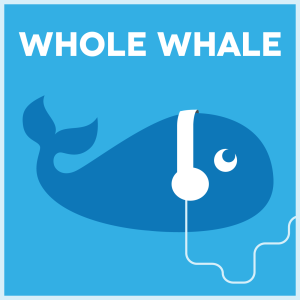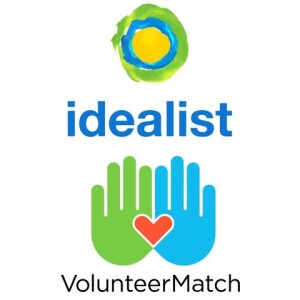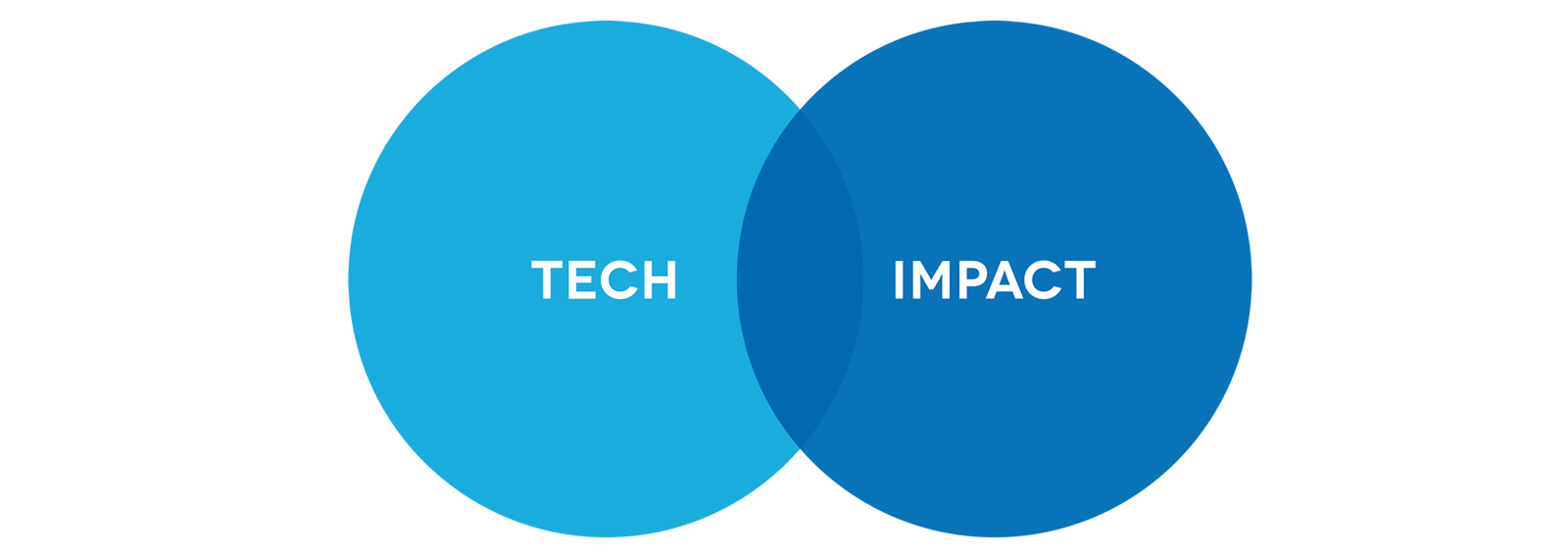
216.9K
Downloads
517
Episodes
Nonprofit News, Tech & Marketing Stories from Whole Whale, a Nationally Recognized Nonprofit Marketing Agency for over a decade. Founded in 2010, Whole Whale is a B-Corp that runs analytics, digital advertising, Google Ad Grants, and SEO for nonprofits.
Nonprofit News, Tech & Marketing Stories from Whole Whale, a Nationally Recognized Nonprofit Marketing Agency for over a decade. Founded in 2010, Whole Whale is a B-Corp that runs analytics, digital advertising, Google Ad Grants, and SEO for nonprofits.
Episodes

Friday Mar 28, 2025
DOGE BARKS AT BIG BIRD: SESAME'S STRUGGLES & PBS UNDER ATTACK 🐦📺🌈 (news)
Friday Mar 28, 2025
Friday Mar 28, 2025
In this episode of the Nonprofit News Feed by Whole Whale, hosts George and Nick delve into the financial turmoil facing Sesame Workshop, the nonprofit behind the beloved children's program, Sesame Street. The organization is grappling with the expiration of its HBO contract, which previously served as a significant revenue stream. This development coincides with broader challenges, including potential funding cuts to PBS and NPR and the impact of reduced U.S. foreign assistance on Sesame Workshop's humanitarian programs.

Wednesday Mar 19, 2025
Greenpeace 🌳 Faces Potential Existential Threat From Lawsuit (news)
Wednesday Mar 19, 2025
Wednesday Mar 19, 2025
Main News Stories
Greenpeace Lawsuit
- Energy Transfer (owners of Dakota Access Pipeline) is suing Greenpeace for $300 million in damages
- The lawsuit claims Greenpeace orchestrated protests near Standing Rock, which Greenpeace denies
- Potential damages could reach $800 million with punitive damages, potentially bankrupting Greenpeace USA
- Greenpeace maintains they only supported an indigenous-led movement (involving over 300 tribal nations)
- The hosts discuss concerns about this establishing a dangerous precedent for protest liability and potentially chilling environmental activism
- The case is being heard in a conservative jurisdiction less favorable to activists
Nonprofit Consultant Survey Results
- Fourth annual survey by Nonprofit.ist and Nonprofit Times provides industry benchmarks
- Average consultant rate: $151.19/hour (median: $126)
- Highest rates: consultants specializing in AI technology, fundraising, and coaching
- Higher education correlated with higher rates
- Urban consultants earn significantly more than rural ones
- New consultants with significant nonprofit experience tend to charge less despite deep knowledge
USDA Cancels Local Food Programs
- USDA cut two major local food programs worth over $1 billion in funding:
- $660 million for Local Food for Schools initiative
- $420 million for Local Food Purchase Assistant program
- Cuts affect schools and food banks
- Impacts include increased food costs amid inflation and undermining community food systems

Sunday Mar 16, 2025
Trump Admin Attacks Public Service Loan Forgiveness (news)
Sunday Mar 16, 2025
Sunday Mar 16, 2025
In this episode of the Nonprofit News Feed, George and Nick discuss recent challenges facing the nonprofit sector under the Trump administration. They examine two major concerns: changes to the Public Service Loan Forgiveness program potentially excluding certain nonprofit employees, and federal agencies removing progressive terminology from government websites. The hosts share insights from a Center for Effective Philanthropy report indicating 90% of nonprofit leaders anticipate negative impacts from the current political climate, with funding uncertainty as their top concern. Despite these challenges, they find a silver lining in the sector's evident importance and highlight a feel-good story about Project 150, a Las Vegas nonprofit helping disadvantaged teens attend prom through their annual "prom closet" initiative.

Monday Mar 10, 2025
Nonprofits Are Losing Web Traffic. AI Search Is To Blame (news)
Monday Mar 10, 2025
Monday Mar 10, 2025
In this episode, we focus on declining nonprofit website traffic due to AI search tools. Key points include:
- Nonprofit website traffic is declining as AI tools like ChatGPT and Google's AI overviews reduce the need for users to visit original content sources.
- Major content creators like HubSpot have lost up to 80% of their traffic due to these changes.
- We recommend:
- Adjusting traffic expectations (considering "break-even" the new growth)
- Focusing on conversion rate optimization
- Creating original research and data that AI can't replicate
- Using Google Search Console to identify which content triggers AI results
Additional stories covered:
- A discussion about nonprofit mergers based on Idealist.org's merger with VolunteerMatch.org
- USAID funding cuts affecting humanitarian aid organizations and their life-saving programs
- A success story about a Massachusetts movie theater saved by converting to a nonprofit model

Monday Mar 03, 2025
A Rare Nonprofit Merger Story: Idealist.org & VolunteerMatch.org
Monday Mar 03, 2025
Monday Mar 03, 2025
Ami Dar, founder of Idealist.org, joins George for an insightful conversation on the groundbreaking merger between Idealist and VolunteerMatch.org—a rare consolidation poised to reshape nonprofit and volunteer engagement globally. Ami shares candid insights into why nonprofit mergers rarely happen, systemic challenges in nonprofit funding, and how this merger creates a single hub for millions seeking jobs, volunteer opportunities, and meaningful community involvement. He also discusses underutilized tech opportunities, Idealist’s exciting new "Idealist Days" initiative, and why he's optimistic about nonprofits providing purpose in an AI-driven future.
Big questions covered in this conversation:
-
Why did Idealist.org and VolunteerMatch.org decide to merge, and what unique value does this merger bring to nonprofits and volunteers?
-
Why are mergers so rare in the nonprofit sector, and what factors (like ego and financial security) prevent more organizations from consolidating?
-
How are systemic funding issues impacting nonprofit efficiency and accountability, and what changes are needed to improve nonprofit outcomes?
-
What trends are shaping volunteerism today, and how can nonprofits better harness the desire for community engagement and purpose-driven work?
-
How can nonprofits leverage emerging technology and AI, and what role can the nonprofit sector play in providing meaningful human purpose in an increasingly automated world?

Tuesday Feb 25, 2025
Chan Zuckerberg Initiative Backs Away From DEI & Advocacy Work (News)
Tuesday Feb 25, 2025
Tuesday Feb 25, 2025
Nonprofit NewsFeed Podcast: Trump Administration Impact & Philanthropy's Response
Episode Summary
In this episode of the Nonprofit News Feed Podcast, host Nick Azulay is joined by Whole Whale COO and President Megan Anhalt to discuss the new Trump administration's impact on the social impact sector and philanthropy.
The conversation covers the federal funding freeze affecting numerous nonprofit organizations, particularly highlighting the stop work order affecting unaccompanied minors in immigration proceedings and the devastating fallout from USAID funding cuts. As organizations struggle to fill these gaps, they examine the critical role philanthropy must play during this crisis.
The hosts then do a deep dive into the Chan Zuckerberg Initiative's (CZI) recent decision to end its social advocacy funding, including work on immigration reform and racial equity, and end its DEI efforts—a move that came shortly after Meta (formerly Facebook) made similar cuts. They analyze this as a case study of how even the most well-resourced philanthropic entities are yielding to political pressure.

Thursday Feb 13, 2025
Thursday Feb 13, 2025
In this episode, hosts George Weiner (Chief Whaler at Whole Whale) and Nick Azulay (Digital Strategy Manager) discuss several notable stories in the nonprofit sector. They begin with an analysis of Super Bowl social impact advertisements, breaking down the effectiveness and cost implications of nonprofit messaging during the big game. They highlight that the $8 million cost for a 30-second spot equals roughly 275 years of the average nonprofit's annual advertising budget.
The conversation then shifts to concerning policy changes affecting the National Center for Missing and Exploited Children (NCMEC), discussing the Justice Department's funding threats and their impact on LGBTQ+ youth services. On a more positive note, they cover the launch of ROOST (Robust Open Online Safety Tools), a new nonprofit consortium backed by major tech companies to develop safety tools for startups.

Wednesday Feb 05, 2025
Wednesday Feb 05, 2025
Dissolution of USAID and Its Global Impact on Humanitarian Aid
In this week's episode of the Nonprofit News, George Weiner and Nick Azulay from Whole Whale dive into the troubling developments surrounding the United States Agency for International Development (USAID). As the largest international development humanitarian donor, USAID's dissolution and potential absorption into the State Department is raising alarms across the nonprofit sector. The agency, responsible for 40% of global humanitarian funding, has seen mass layoffs and program freezes, affecting thousands of employees and contractors. The ripple effects are profound, with NGOs and international partners facing severe funding gaps.
USAID's substantial contributions to the United Nations and its affiliates, such as UNICEF and the World Food Program, underscore the stakes involved. Despite criticisms of USAID's top-down approach, the abrupt halting of its operations is likened to pulling the rug from under life support systems globally. The discussion highlights the need for transparency and the catastrophic potential of cutting off essential aid without proper transition plans.
Key Insights:
- USAID's role as a major funder of global humanitarian efforts is irreplaceable, making its dissolution a potential "philanthropic disaster."
- The agency accounts for a mere 1% of the U.S. federal budget but is heavily audited, contrary to some criticisms.
- The sudden program halts could irreversibly damage initiatives combating diseases, famine, and crises worldwide.
Calls to Action:
- Nonprofits and stakeholders must advocate for transparency and continuity in humanitarian aid.
- Consider the broader implications of policy changes on global aid structures.
Follow-Up:
- The episode also touches on the National Council on Nonprofits' legal victory against a U.S. executive order affecting funding, demonstrating the power of collective action.
- A Canadian postal strike serves as a case study for nonprofits on the importance of diversifying fundraising strategies.
Closing Thought: The episode underscores the interconnectedness of global aid systems and the need for strategic planning and advocacy to navigate political changes that threaten humanitarian efforts.

Thursday Jan 30, 2025
Trump Admin Issues Executive Orders With Real Implications For Nonprofits (news)
Thursday Jan 30, 2025
Thursday Jan 30, 2025
Nonprofit News Feed: Navigating Policy Shifts and New Opportunities
This week on Whole Whale's Nonprofit News Feed, hosts George Weiner and Nick Azulay delve into the tumultuous changes impacting the nonprofit sector under the current U.S. administration. The episode kicks off with a discussion on the federal funding freeze and two executive orders targeting diversity, equity, and inclusion (DEI) initiatives and immigration policies. These orders have created a climate of fear and self-censorship among nonprofits, universities, and foundations, particularly those with assets over $500 million. The hosts emphasize the importance of adapting language on websites and communications to continue the essential work of social justice and diversity without drawing federal scrutiny.
The conversation shifts to the potential consequences of rescinding protections for undocumented individuals in schools and churches, highlighting the chilling effect on immigrant communities and the nonprofits that support them. Despite these challenges, the hosts express admiration for nonprofit associations like the Council of Nonprofits, which are actively filing lawsuits to protect federal funding and advocating for the sector.
In a lighter segment, the podcast explores the rise of a new AI player, DeepSeek, a Chinese startup offering open-source AI models that rival American counterparts at a fraction of the cost. George discusses the implications for the nonprofit sector, emphasizing the importance of understanding the biases and privacy concerns associated with using such models.
The episode concludes with uplifting news about a partnership between Harvard and the nonprofit Westbridge, aimed at connecting high-achieving, low-income students to top colleges with full financial aid. This initiative is seen as a positive step towards maintaining diversity in higher education following recent Supreme Court decisions.
Listeners are encouraged to engage with nonprofit associations and explore innovative solutions to continue their impactful work amidst policy changes. The episode wraps up with a feel-good story about the Southern Nevada Off Road Recovery (SNORR) nonprofit, which provides vital search and rescue services, and a classic dad joke to lighten the mood.

Wednesday Jan 22, 2025
(news) Idealist.org Merger, Google Ad Problems
Wednesday Jan 22, 2025
Wednesday Jan 22, 2025
In this episode of Nonprofit Newsfeed, George Weiner, Chief Whaler at Whole Whale - a marketing and analytics agency for nonprofits, is joined by Leo Quintero, VP of Learning and Innovation. Together, they delve into the rare and exciting news of a merger between Volunteer Match and Idealist.org, two titans in the nonprofit sector. This merger promises to consolidate resources and enhance the ability to connect individuals with volunteer opportunities and nonprofit jobs across the globe.
Main Highlights:
-
Volunteer Match and Idealist.org Merger: This rare merger in the nonprofit sector aims to combine forces to better serve nonprofits and volunteers. With Volunteer Match's expertise in connecting nonprofits with volunteers and Idealist's broad reach in nonprofit jobs and internships, the merger is set to be a game-changer in the sector. The merger will maintain both platforms' existing functionalities while working toward greater integration by 2025.
-
Implications for HR and Volunteers: Leo highlights the potential benefits for HR departments and nonprofits, suggesting that the merger will enhance the quality and reach of volunteer recruitment. The integration of platforms may lead to a richer pool of talent and volunteers, benefiting nonprofits in need of diverse skill sets.
-
Compliance and Campaign Finance: A significant portion of the episode discusses the $300,000 fine levied on the New Georgia Project for campaign finance violations. This segment underscores the importance of compliance in nonprofit operations, especially when involved in lobbying and advocacy.
-
Google Advertising Challenges for Nonprofits: The episode addresses recent changes in Google's advertising policies that allow other entities to use nonprofit brand terms in search ads, potentially driving up costs. George advises nonprofits to leverage Google Ad Grants effectively to maintain visibility without overspending.
-
Community Engagement on MLK Day: The episode closes with a feel-good story about Vermont nonprofits honoring Martin Luther King Jr. Day through community service and engagement, highlighting the power of community-driven initiatives.
